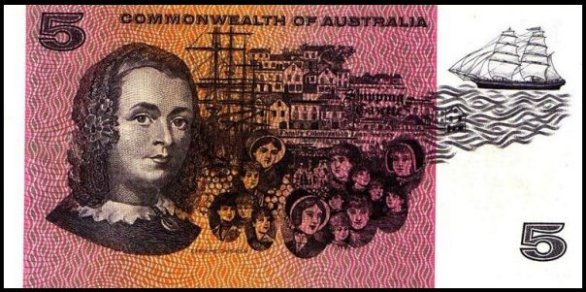A French historian, Michelet, wrote in the Sydney Morning Herald of 8 February 1911:
The richest and most powerful Government of the world, master of India and a million men, failed in the colony, where a single woman succeeded through her force of character and vigour of soul. Without fortune or help she did more for the new world [Australia] than all the emigration societies and the British Government put together.
The same newspaper report says that other powerful men of the time also praised this woman’s work: ‘Her mission is one of the most original ever devised or undertaken by man or woman’ (Robert Lowe, later to be Viscount Sherbrooke); and ‘She has done more for the moral regeneration of the Australian colonies than all their clergy with their four of five bishops to boot’ (a writer in the Westminster Review, a political magazine of the time).
Who was this woman, and why were people – in both Australia and Britain – praising her work like this? What had she achieved?
Her name was Caroline Chisholm. Many older Australian people may recognise her face, because it was featured on our five dollar note from 1967 until 1990. Only very important people are featured on our money, so she must have done something significant. Caroline certainly did: she helped women in need during the early settlement of Australia.
Caroline was brought up in a Christian home in England. As a child, she visited the poor and the sick with her mother. People who were in need were often brought into the family’s own home to be looked after. Jesus’ teaching to ‘Love your neighbour as yourself’ was a very important part of Caroline’s upbringing. She saw her parents loving their neighbours as they helped to care for them.
It’s therefore not surprising that, after moving to Australia with her husband in 1838, Caroline noticed that many single women in the colony of New South Wales needed help. These immigrant women were arriving in Australia expecting to make new lives for themselves, but they had no money, and finding work was difficult. Many were forced to live on the streets, where they were in constant danger of being attacked. The government of the day showed no interest in trying to help these desperate women find shelter or jobs.
So Caroline, at first using her own money to support them, took these vulnerable single women into her own home. But it soon became obvious that accommodating an increasing number of young women was going to be a problem, so Caroline decided to speak to the Governor – the most powerful man in New South Wales. Governor Gipps is said to have commented:
I expected to have seen an old lady in white cap and spectacles, who would have talked to me about my soul. I was amazed when my aide introduced a handsome, stately young woman who proceeded to reason the question as if she thought her reason and experience were worth as much as mine.
The Governor allowed Caroline to take over an old, rat-infested government building in which she could house more women.
It must have taken a lot of courage to go and talk to the Governor at a time when women’s views were not necessarily respected by powerful men. What gave her the strength to take on this challenge?
Firstly, Caroline realised that this problem was great and beyond her capabilities, and that she would need to rely on God for a good outcome. On Easter Sunday 1841, she offered all she had to the Lord and told Him she would dedicate her life to the cause of helping these poor immigrants. She wrote at the time, ‘I felt my offering was accepted and that God’s blessing was on my work’. God gave her the confidence to make things happen.
Secondly, her deep concern for the welfare of others, and her desire to follow the teachings of Jesus, drove her to act. Caroline became very famous for her work, but that was not the reason she did it. She lived her life for the benefit and wellbeing of others.
Within six years of making her Easter Sunday commitment to God, over 11,000 immigrants has been settled. Caroline also worked to strengthen families and keep them together, organising for many wives and children who’d been left behind in England to be reunited with their husbands and fathers working in Australia.
In all that she did, Caroline Chisholm worked to improve the lives of others. Just like her parents, she truly ‘loved her neighbour as herself’.
Written by Graham and Pam McLennan.
Additional resources:
www.chr.org.au

